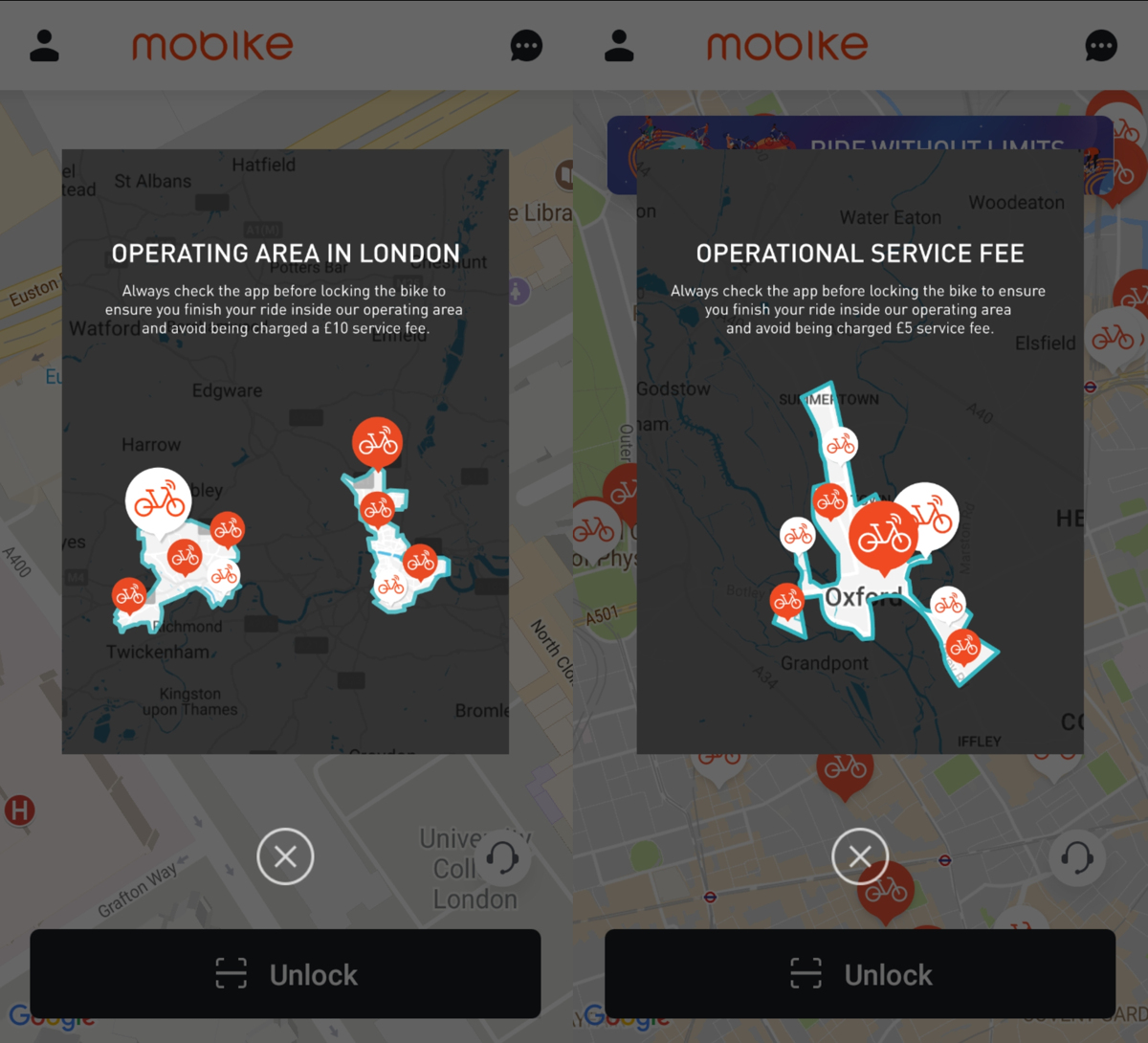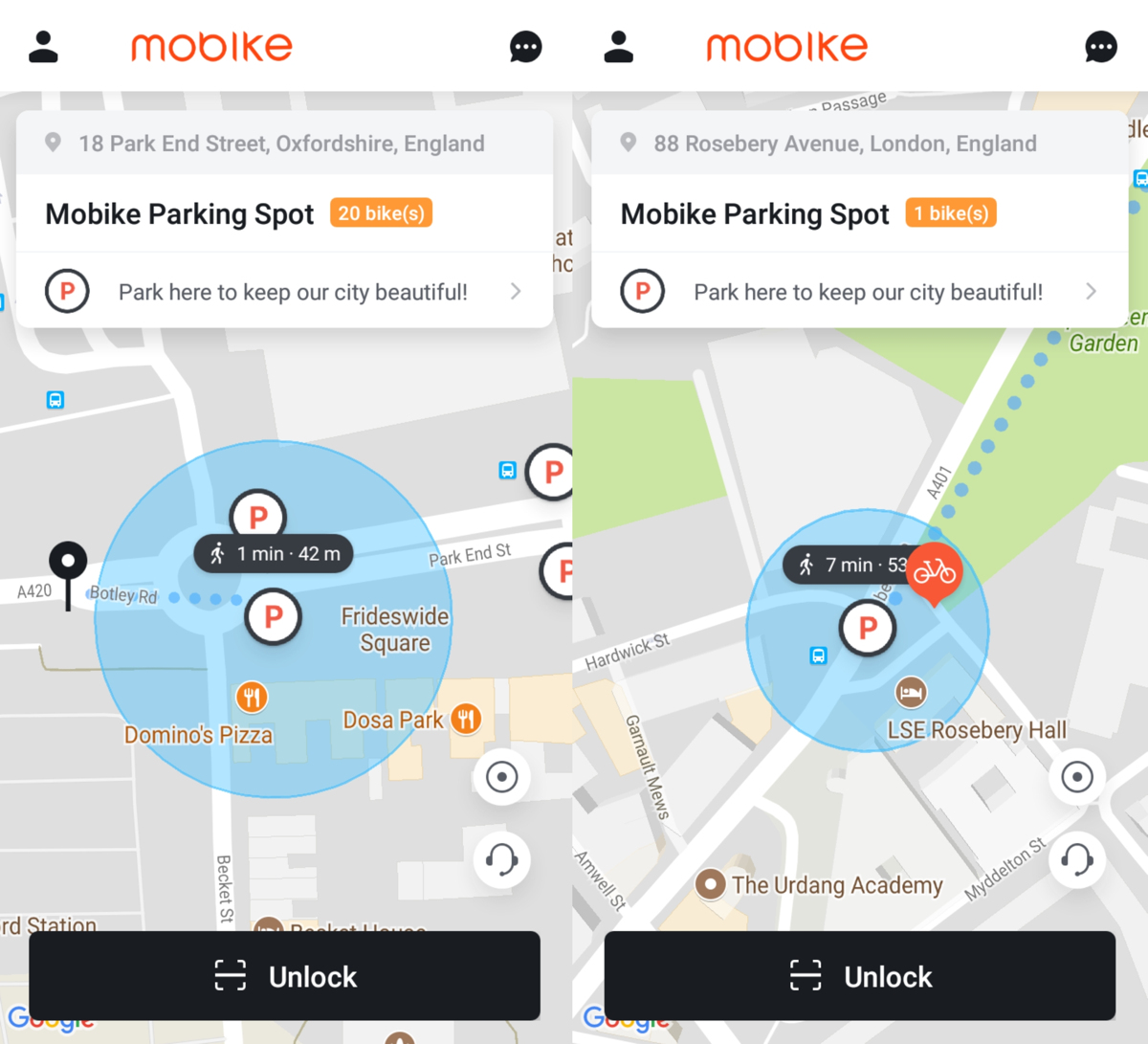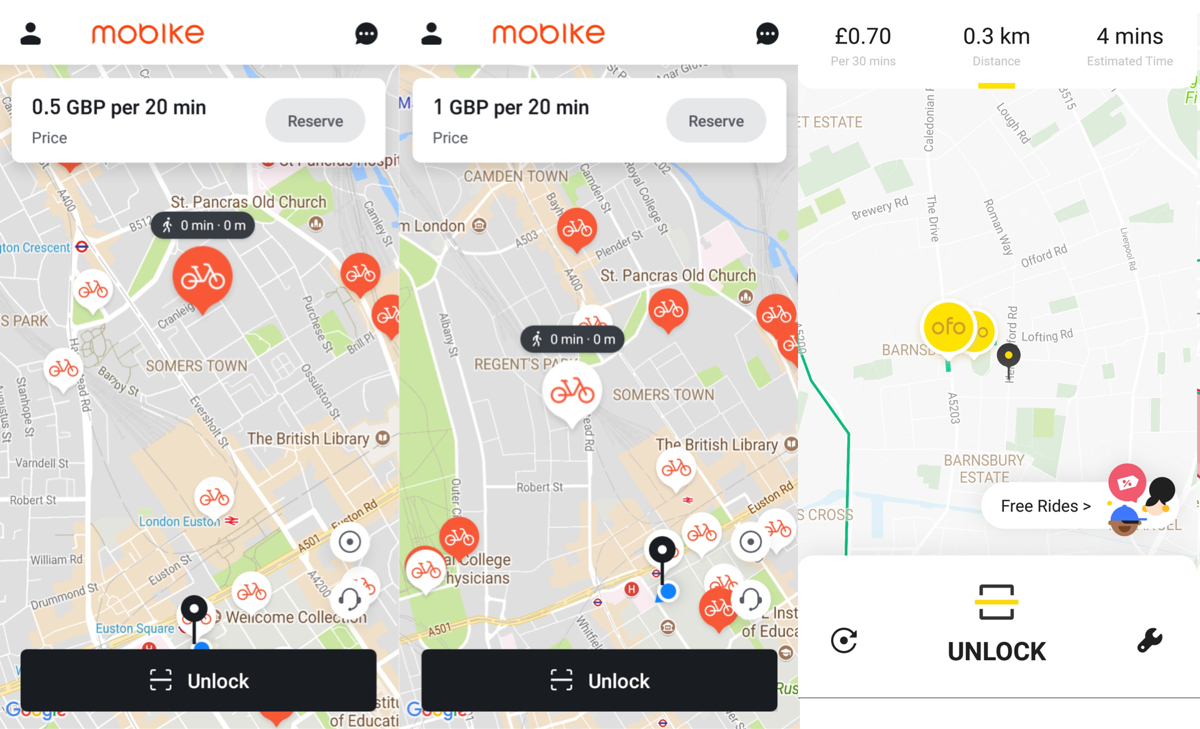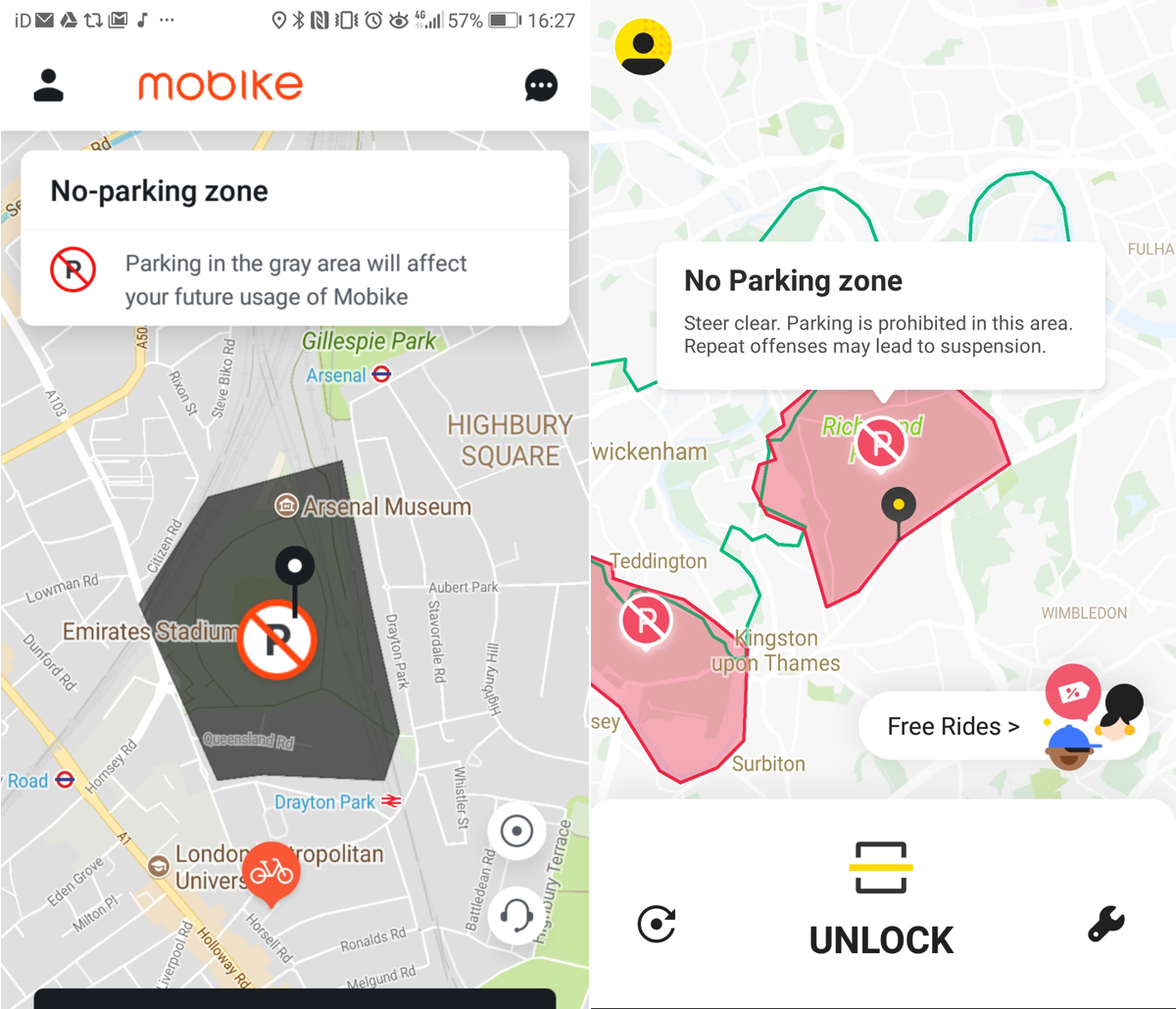Making Bikeshare Pay
Dockless bikeshare has been out in London for around 10 months now (not withstanding the brief but spectacular oBike launch and burnout in mid 2016). It looks like the operators are getting serious and trying to get dockless bikeshare to pay for itself – starting a transition from a “growth” to “profit” focus:
Mobike has introduced an out-of-operating-area fee of £10 (for London) or £5 (for Oxford):

It isn’t clear whether you can continue to start journeys from outwith the operating area, but you must finish finish within them to avoid the fee.
Mobike is making a bigger deal of its hubs now, showing the numbers of bikes currently available at them. Bikes in a circular buffer around each hub are reported as at the point in some cities (Oxford – left) but individually in others (London – right). This makes them a little more like a hybrid system, with certain locations generally having a reliable pool of bikes available, but with out-of-hub parking still available to keep the system flexible. At this point, there is no user incentive for hub-based journey finishes or starts.

Mobike have also shrunk their Islington operating area – it now doesn’t extend north of Holloway. Presumably Mobike are tired of moving their bikes back up the hill to Archway and Highgate, only to have everyone cycle them back down. However they have extended into a small part of Hackney – the De Beauvoir Town area. They have also shrunk their Southwark footprint, so that the bikes can only be used north of the South Circular, and their western footprint has also shrunk – no service in west Hounslow, Feltham, Southall or Greenford now.
In addition they have significantly increased their usage fee. Initially it was 50p for 30 minutes. Now, it is 50p for 20 minutes on the smaller-frame bikes with black baskets (show as orange on their map), or £1 for 20 minutes on the larger-frame bikes with orange baskets (shown as white on their map).

Ofo has also increased their usage fee, it is now 70p for 30 minutes. So, in places where both systems operate, the small Mobikes are cheaper for journeys up to 20 minutes, the Ofos are cheaper for 20-30 minute journeys, the small Mobikes are cheaper for 30-40 minute journeys, the Ofos are cheaper for 40-60 minute journeys, and the Mobikes are cheaper for 60-80 minutes, etc etc….
Ofo are also now showing forbidden areas on their app. This is interesting, because I assumed that all areas outside of their operating area were forbidden. I think the new forbidden areas don’t allow a user to lock their bike if they are in one – presumably as these are areas where dockless bikeshare bikes are being aggressively confiscated by the authorities. Other out-of-operating-area areas allow journeys to finish but the user (only) is then encouraged to move the bike back into an operating area within 12 hours, it is locked out of use for others.

This means that in effect there are five types of dockless system geofences, with Ofo using all five and showing four of them on their app, while Mobike are using four and showing two on their map:
| Ofo | Mobike | |
|---|---|---|
| Hub area | Shown in app as points overlaid on green-bordered rectangles. Parking here encouraged but not incentivised. | Shown as points, but a blue circular buffer is shown on clicking it. Parking here encouraged but not incentivised. |
| Operating area | Show as green-bordered areas | Shown as blue shaded/bordered areas |
| Out of operating area | Shown as regular map. Parking locks bike for user-only redistribution back. | Shown as regular map. Parking results in fine, but still available for use. |
| Forbidden area | Shown as red shaded/bordered areas. Parking not possible? | Not used |
| Out of region | Not shown by either. But I assume there is a distance, out of the operating area, beyond which the operator would not seek to recover the bike into the operating area, but might sanction the user instead. For London, the GLA boundary might act as such an area | |
Meanwhile, the third dockless player in London, Urbo, has announced it is quitting the three London boroughs it is operating in – Enfield, Waltham Forest and Redbridge. Enfield will announce a replacement “soon”, Waltham Forest is getting Ofo in instead, and Redbridge already has Ofo. The numbers don’t sound great – only 6000 journeys in Waltham Forest in 5 months, on a fleet of 250 – so 20 journeys a day, or 0.16 journeys/bike/day, and 3000 miles clocked up in Enfield, again in 5 months, on a fleet of 100 – so (assuming average journey of 1 mile) 0.2 journeys/bike/day. This means these bikes are spending 99.8% of their time not being used (assuming an average journey of 15 minutes).
Barnet had just announced that Urbo was coming there, and Barking & Dagenham was due to sign-off Urbo coming there in July – I would speculate that these launches may be off. Urbo, an Irish company from the start, has just been bought by the operator of several bikeshare systems in towns in Ireland, and it has just launched Dublin, where it has access to the whole of the city. Just like in London, Dubliners likely want to cycle throughout the urban area and not within arbitrary political boundaries. So that would likely be where the London Urbo bikes are going.
In better news, both Ofo and Mobike are both continuing to expand in London this summer. Mobike should be coming to Haringey soon, while Ofo is expanding to at least three more boroughs soon (on top of their “emergency” Waltham Forest expansion).
